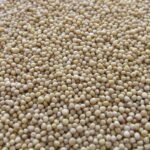Uncover the untold secrets of the humble jar of peanut butter in your pantry. From a simple peanut to your favorite sandwich spread, there’s more than meets the eye with this creamy (or crunchy) delight.
Where Peanut Butter Comes From: A Nutty Tale
Peanut butter’s humble beginnings can be traced back to the ancient Incas and Aztecs, who ground peanuts into a paste. However, it wasn’t until the late 19th century that peanut butter as we know it – smooth, creamy, and oh-so-spreadable – started making a regular appearance in American households.
Modern peanut butter production involves harvesting peanuts, roasting them, cooling them, removing their skins, and finally grinding them into a paste. But wait, there’s more! That peanut-y paste is then mixed with a dash of salt, a bit of sweetener, and an oil stabilizer to prevent separation. Voila! Your jar of peanut butter is ready for the shelf.
Peanut Butter – More Than One Way to Enjoy
Peanut butter is like a chameleon in the culinary world – it effortlessly blends into any meal. Most folks prefer it in sandwiches, smothered between two slices of bread, accompanied by its faithful companion, jelly. Others find comfort in peanut butter cookies, desserts, and smoothies.

But don’t stop there, folks! Peanut butter can be used in savory dishes, too. Think Asian cuisine – peanut butter in sauces, stir-fries, and noodle dishes? Yum! It’s versatile, flavorful, and a sure way to add a dash of nutrition to your meals.
Benefits and Nutritional Values: What’s Under the Lid?
Ever wondered what good ol’ peanut butter is packing? Boy, you’re in for a surprise!
Here’s a nifty little table that’ll give you the lowdown:
| Nutrients | Amount per 100g |
|---|---|
| Calories | 588 |
| Protein | 25g |
| Total Fat | 50g |
| Carbohydrates | 20g |
| Dietary Fiber | 6g |
| Sugar | 9g |
| Vitamin E | 9mg |
| Magnesium | 176mg |
Now, don’t be fooled by the fat content. Most of the fats in peanut butter are monounsaturated fats, the heart-healthy kind. Plus, it’s packed with proteins, dietary fiber, and essential vitamins and minerals. Talk about a powerhouse of nutrition!
Frequently Asked Questions
Is peanut butter healthy?
When eaten in moderation as part of a balanced diet, peanut butter can be a great source of protein, healthy fats, vitamins, and minerals. However, it’s important to note that it is also high in calories, so moderation is key!
Can you eat peanut butter every day?
There’s no harm in eating peanut butter daily, as long as you maintain a balanced diet and stick to a healthy portion size (about 1-2 tablespoons).
Does peanut butter make you gain weight?
Peanut butter is high in calories and can contribute to weight gain if consumed in excess. However, its high protein and fiber content can also help you feel full and satisfied, potentially aiding in weight management.
Wrap-Up: The Spread that Spreads Joy
Our love for peanut butter is more than just about the taste. This creamy spread also carries a wealth of nutritional benefits. From its protein and healthy fats to its vitamins and minerals, peanut butter is a surprising ally in our pursuit of a balanced diet.
Remember, as with any food, moderation is key. So, next time you’re making a sandwich or stirring up a smoothie, reach for that jar of peanut butter. Your body will thank you!
Fun Facts:
- The world’s largest peanut butter factory churns out 250,000 jars of the tasty treat every day!
- It takes about 540 peanuts to make a 12-ounce jar of peanut butter.
- Two peanut farmers have been elected president of the USA – Thomas Jefferson and Jimmy Carter.
Source: National Peanut Board, USDA Food Data Central




